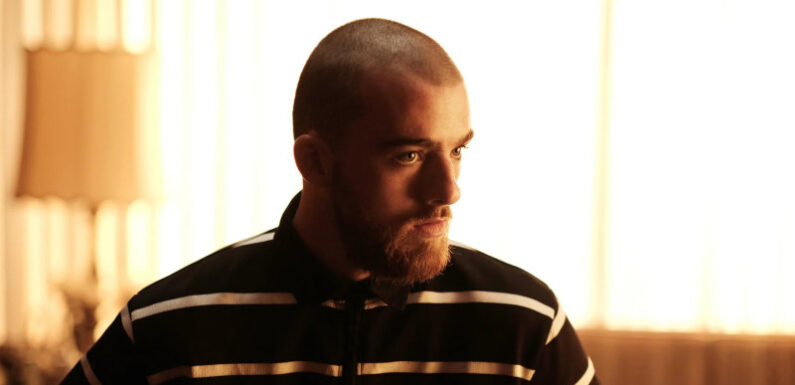
Save articles for later
Add articles to your saved list and come back to them any time.
Euphoria fans are mourning the death of promising actor Angus Cloud, who played the role of Fezco on the smash HBO show. Cloud was just 25 years old. Originally street cast while working at a Brooklyn restaurant, Cloud brought a sense of humility and relatability to his role as the teenage drug dealer and best friend of the main character, Rue Bennett, played by Zendaya. With his fawn-like good looks and deep drawl, Cloud’s real talent was his ability to convey nuance in a show that painted adolescence in broad trauma-soaked strokes.
Open about his struggles with mental health, and his distaste for fame after the breakout season’s meteoric success, Cloud’s tragic passing eerily echoes Euphoria’s own portrayal of adolescence and mental health.
Euphoria fans are mourning the death of promising actor Angus Cloud.Credit: Richard Shotwell
It’s hard to read the news of Cloud’s death without thinking about the legacy of Euphoria, which aired between 2019 and 2022. If one of the most popular teen shows of its time depicted adolescence only as a dark, trauma-filled, anxiety-laden bender with intense sex scenes and representations of domestic violence, as Euphoria did, are younger viewers really getting the complexity they deserve?
I grew up watching the British breakout comedy Skins. At fourteen, the show felt scandalous with its scenes depicting after-school spliffs and teacher-student romances. There was sex, and drugs and trauma, but this was balanced with a buoyancy of humour and lightness, true to the actual experience of being a teen. A show like Euphoria was relatively devoid of essential teenage elements like levity, cringe and laughter. In their absence, what was it reinforcing to the viewer?
Objectively, Euphoria was a good show. Its cast is broadly brilliant and features some of the brightest new stars of acting, Cloud and his fellow street-cast co-star Chloe Cherry included. The characters have nuance and complexity and the aesthetic is alluringly slick with cinematic treatment on every episode (a far cry from the greyish-brown palette of Girls, a decade earlier).
Cloud’s own character, Fezco, balanced a caring and responsible wisdom with a hard-line criminal way of life. He did this with fluidity and nuance, seemingly effortlessly. He played the character so well in fact, that he aired his frustration at being equated in real life with Fez’s criminal ways in an interview with Variety in 2022.
Cloud’s tragic passing has an eerie echo to Euphoria’s own portrayal of adolescence and mental health.Credit: Eddy Chen
One of the biggest critiques Euphoria faced was the accusation it was overly sexualised, with scenes depicting sexual violence against a trans character and at times unnecessary hypersexual content of the female characters. The show’s creator, Sam Levinson, seemed to dodge most of this criticism in the initial release, with dubious suggestions that the show could function as a “conversation starter” between the show’s young viewers and their parents.
But given Levinson’s writing was razed to the ground in the recent reviews of The Idol, largely for its depiction of women and sex, it seems that with hindsight the criticisms of Euphoria were prescient, if anything.
The show was able to show nuance when it chose to do so. One of the more nostalgic and relatable storylines of the last season of Euphoria was the blossoming romance between Fezco and Lexi, the show’s Type A good-girl character played by Maude Apatow, and who the audience probably could relate to the most. Cloud’s performance was measured, real and heartfelt. In a twisted kind of foreboding, the two watch the cult classic film Stand By Me at the end of season two, singing the lyrics to the Ben E. King song of the same name whilst high on the couch, crying and laughing.
One of the more nostalgic and relatable storylines of the last season of Euphoria was the blossoming romance between Fezco and LexCredit: Eddy Chen
In the context of Euphoria, the “Fexi” relationship was compelling in its innocence, with Apatow and Cloud interweaving their characters’ apparent differences through fluid conversation and brilliant chemistry. It was strikingly un-sexual and felt like a reprieve from the trauma-scape of the rest of the show. It was a clear example of how much Cloud had to offer, and how far his character – and his acting – had come.
Cloud’s career was really only just starting, and it was fascinating to contemplate what work he could have made outside Levinson’s often-overwrought Euphoria. Like the death thirty years ago of River Phoenix, right now, it feels like Hollywood has again lost one of its finest emerging talents, and a generation that so appreciated his humble authenticity, is in mourning.
Grace Moore is a writer and director from Melbourne.
Find out the next TV, streaming series and movies to add to your must-sees. Get The Watchlist delivered every Thursday.
Most Viewed in Culture
From our partners
Source: Read Full Article


